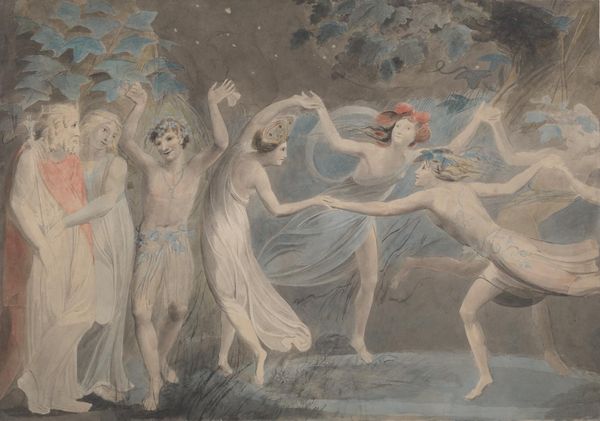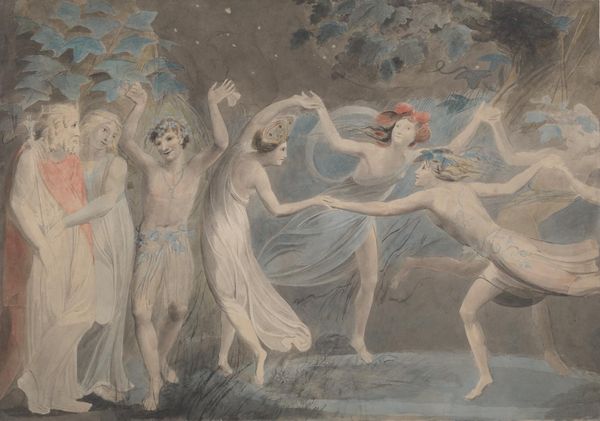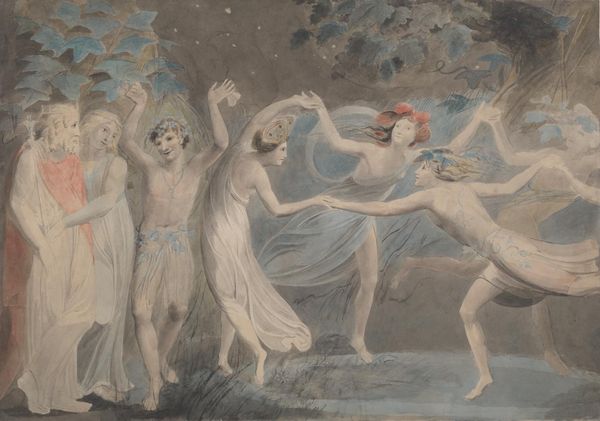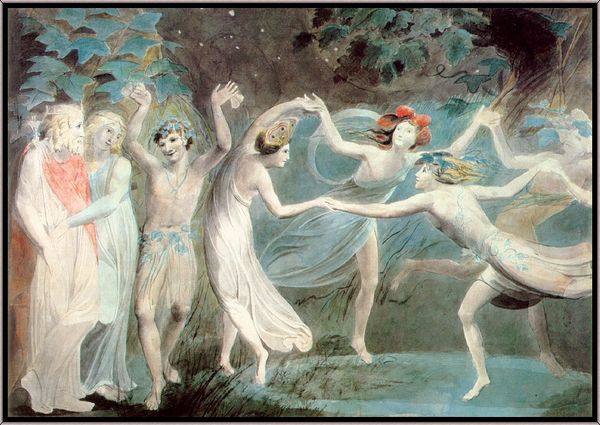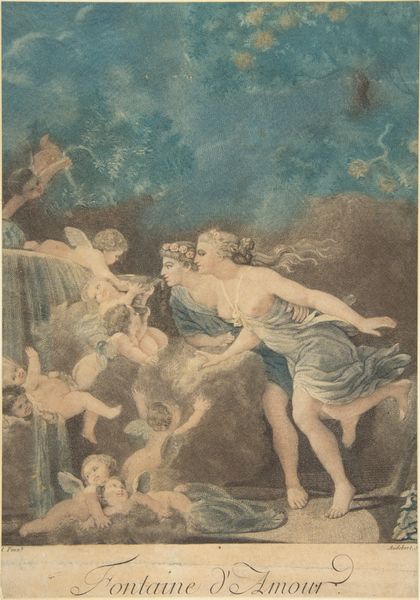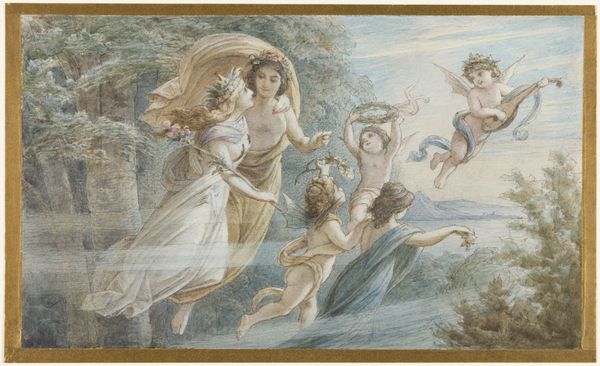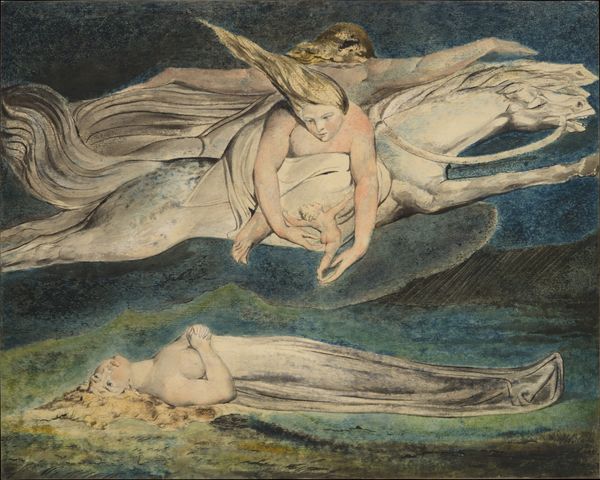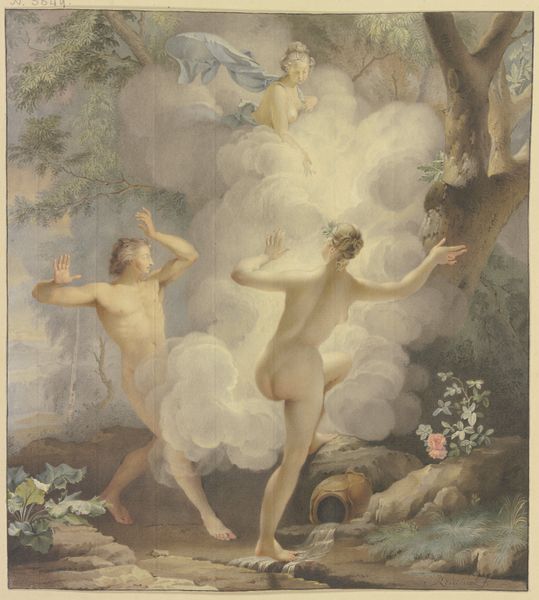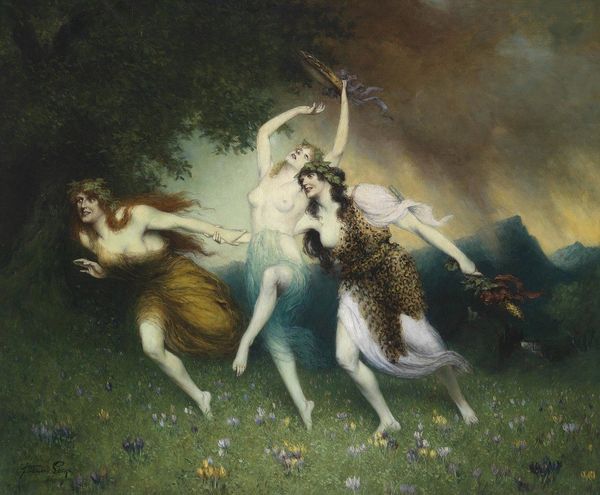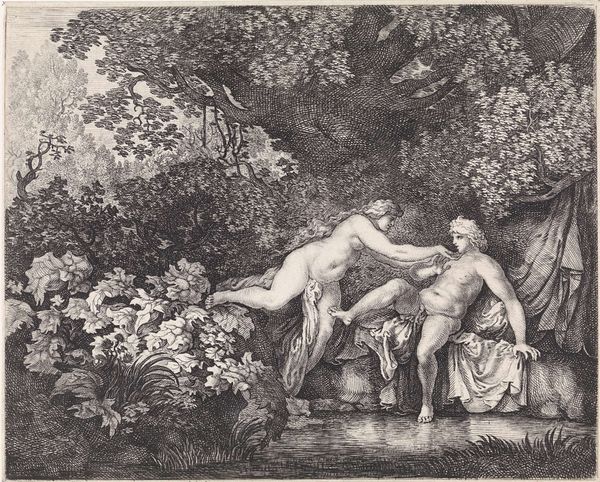
Dimensions: support: 762 x 625 mm frame: 912 x 785 x 75 mm
Copyright: NaN
Editor: So, this is William Blake's "The Spiritual Form of Nelson Guiding Leviathan." It's undated but striking, these figures dancing in washes of color. It feels ethereal, almost dreamlike. What do you make of this swirling scene? Curator: Isn’t it bewitching? For me, it's a reminder that Blake saw the world differently. Not just factually, but emotionally, mythologically. A spiritual dance with Leviathan, perhaps Blake’s comment on the tension between worldly power, represented by Nelson, and primal forces. What pulls you in? Editor: That spiritual dance… it's like he's reimagining Nelson beyond his naval victories. Do you see a critique or a celebration here? Curator: Maybe both? Blake was a rebel. He questioned everything. He saw the "spiritual form" in everyone and everything. It’s up to us to decide if Nelson is leading or being led, isn't it? Editor: That's a lovely way to put it! Now I see the ambiguity, the push and pull.
Comments
tatebritain 9 months ago
⋮
http://www.tate.org.uk/art/artworks/blake-the-spiritual-form-of-nelson-guiding-leviathan-n03006
Join the conversation
Join millions of artists and users on Artera today and experience the ultimate creative platform.
tatebritain 9 months ago
⋮
After the Napoleonic Wars, Admiral Nelson became a celebrated national figure. Blake hoped to recreate this painting as a public monument ‘suitable to the grandeur of the nation’. Yet despite such patriotic claims, he portrays Nelson astride Leviathan, a Biblical serpent associated with chaos and the apocalypse. Figures representing the ‘Nations of the Earth’ are caught in Leviathan’s coils. The anonymous enslaved Black figure beneath Nelson’s feet acts as a dehumanising symbol of Nelson’s unrivalled imperial power. Blake opposed slavery and empire, but the painting is ambiguous: is Nelson shown as a hero or a villain? Gallery label, June 2024
